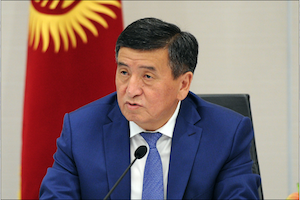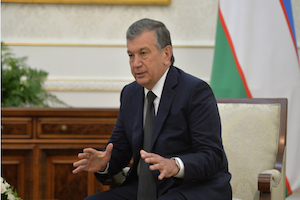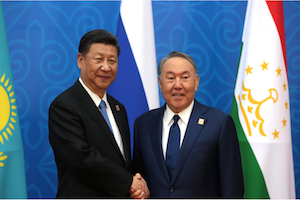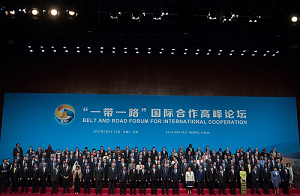Russia Rehearses Military Intervention in Central Asia and the Caucasus
By Roger N. McDermott
November 17, 2017, the CACI Analyst
While much international attention has focused upon Russia’s joint strategic exercise with Belarus, Zapad 2017 in September, in its aftermath Moscow also staged important operational-strategic exercises on a wider scale across the South Caucasus and Central Asia. Not only was the geographical scope of these exercises greater than Zapad 2017, but their various vignettes and scenario details provide glimpses into Moscow’s planning and modelling of future conflict on its periphery.

Kyrgyzstan's Election Controversy: Cause for Concern?
By Jacob Zenn
November 9, 2017, the CACI Analyst
On October 16, Kyrgyzstan announced that the winner of the country’s presidential election with 54 percent of the vote was Sooronbay Jeenbekov. The election nonetheless received criticism for the way it was carried out from international organizations such as the Organization for Security and Cooperation in Europe (OSCE). Other commentators have noted that the departing president, Almazbek Atambayev, also invested personal and state resources to support Jeenbekov’s election. Kyrgyzstan’s reputation as the “island of democracy” in Central Asia has suffered a setback. Amid other concerns about jihadist radicalization in the country, Kyrgyzstan will struggle to reclaim its reputation as a democratic model for the region, especially in the eyes of its neighbors.

Uzbekistan Works to Reshape Central Asia
By Eldor Aripov
November 7, 2017, the CACI Analyst
On September 25, the UN concluded the 72nd session of its General Assembly at the headquarters in New York. Over a hundred heads of state and government, as well as foreign ministers and chiefs of delegations took part in the event. For the first time in 11 years, all member and observer states of the UN addressed the General Assembly. Uzbekistan’s President Shavkat Mirziyoyev also delivered a speech from the high rostrum of the UN, drawing considerable interest both inside Uzbekistan and abroad. Mirziyoyev stated that his government has taken effective measures to eradicate child and forced labor, abolish exit visas, intensify dialogue with international human rights organizations, and placed law enforcement bodies under parliamentary and civil control.

China's Aluminum Industrial Capacity Cooperation in Kazakhstan
By Tristan Kenderdine
October 19, 2017, the CACI Analyst
International Capacity Cooperation is China’s policy answer to comparative advantage, a vast state-planning exercise to coordinate China’s trade and investment strategy in external geographies. It is the practical industrial policy matrix allowing industries, local governments, and policy banking to intersect with partner economies as part of the wider geoeconomic Belt and Road strategy. For China’s aluminum sector, which is already heavily state subsidized and widely considered to be dumping on international markets, it represents an opportunity to extend the lifespan of the industrial policy and policy bank model. The formation of an aluminum capacity cooperation enterprise alliance should be a warning signal to the non-ferrous metals industries of China’s trading partners in Central Asia.

The Chinese One Belt One Road Initiative Could be Doomed without Market Reforms
By Najia Badykova
June 27, 2017, the CACI Analyst
In May, Beijing hosted a summit of global leaders on its One Belt and One Road (OBOR) initiative, a most ambitious project aimed to recreate the ancient Silk Road, connecting China’s industrial heartland to Europe via Central Asia and the Middle East. Given the gigantic scale of the scheme, the geostrategic and economic impact on Central Asian trade and development will be significant. Yet it is unlikely to benefit everyone equally. The less developed and poorer countries along the proposed routes, including those in Central Asia, will face serious challenges if they assume that this initiative alone can fix their economic problems, and use it as an excuse to further delay needed market reforms while coping with the effects of the massive Chinese initiative.




